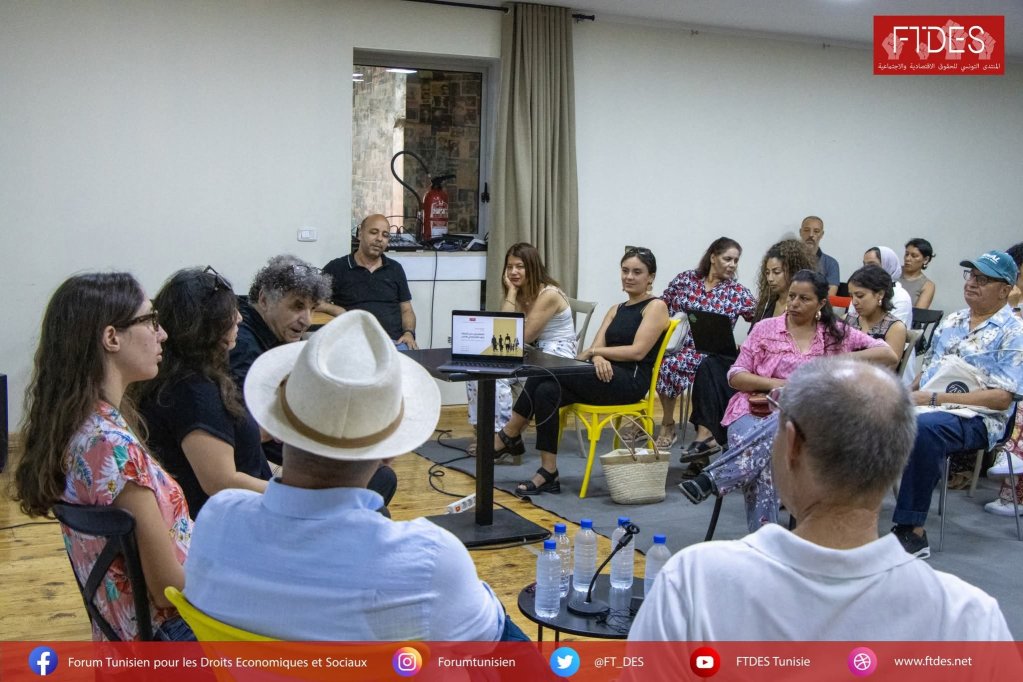FTDES and the University of Sfax published a study on July 8, showing that 70 percent of irregular sub-Saharan migrants in Tunisia do not trust NGOs.
According to a study conducted by the Tunisian Forum for Economic and Social Rights (FTDES) and the University of Sfax, about 70 percent of undocumented sub-Saharan migrants in Tunisia do not trust international organizations, which they believe are accomplices of European policies and are inadequate in terms of providing of humanitarian aid.
The report, entitled "Migrants of sub-Saharan Africa in Tunisia: profiles, means of subsistence, and deviations in migration policies", was presented on July 8 at the Cinema Le Rio in the Tunisian capital.
402 migrants up to age 48 surveyed
The study, led by the sociologist Zouhair Ben Jennat and conducted between January and June, involved 402 irregular migrants in Grand Tunis, Médenine, and Sfax. Questionnaires, in-depth interviews, and focus groups were all used.
The sample included people from different sub-Saharan nationalities, all of whom were aged 48 or under. The study showed a growing percentage of families as well as more women, now around 27 percent, compared with the previous study.
It was found that 85 percent of the migrants arrived in Tunisia overland, mostly through the border with Algeria (60 percent) and Libya (25 percent), while only 14 percent reached the country without a visa but via air.

Despite a fair level of education, with 27 percent holding a university degree, their living conditions are dire: political expert Yasmine Oukrimi noted that, "85 percent of irregular migrants have not received any aid from international organizations."
Additionally, labor exploitation is rampant and has affected one in every five of the migrants surveyed, while 40 percent had been subjected to physical violence and 30 percent suffer from PTSD.
The study also criticizes the dominant narrative in Tunisia, which often claims that there is an "invasion" or migrants and an "international conspiracy" despite there being no evidence for either.
Read Also'You become a target if you are Black', says Ivorian jailed in Tunisia for 'illegal residence'
Migration policies 'need reform urgently'
The study highlights a complex and problematic situation: a wide majority of sub-Saharan migrants distrust the international humanitarian system. The problems do not concern only access to assistance but also the risk of daily violence and exploitation.
The ever greater presence of women and nuclear families also marks a phase of demographic transition of the migration wave, in which emigration is ever more collective choice.
The data collected, the organization said, underscores the urgency of extensive reform to migration policies in Tunisia, including the strengthening of protection networks, access to legal pathways, and security.
There is also the need, it added, for actions to rebuild trust towards international organisations, indispensable in the cases of vulnerability, redesigning forms of cooperation with Tunisian institutions and migrants themselves.
Only an inclusive approach anchored in real needs can reduce risks and improve the living conditions of these fragile communities, it stressed.
Read AlsoDeportations causing anger in Tunisia: 'Death would be infinitely more merciful'
